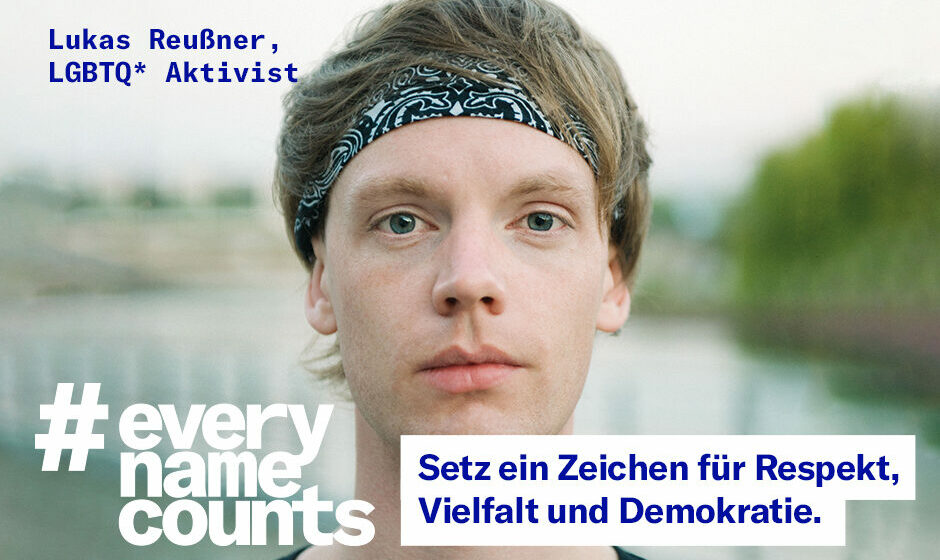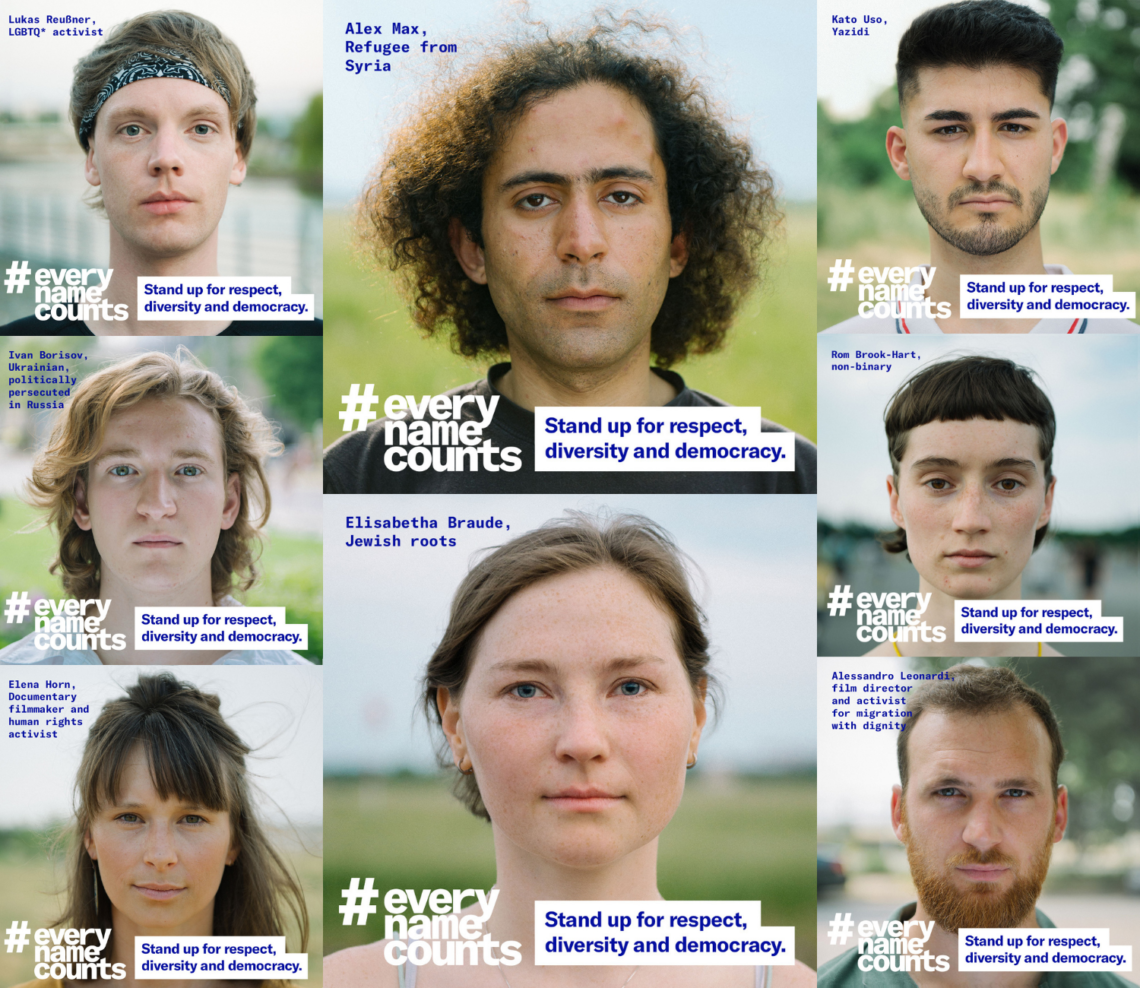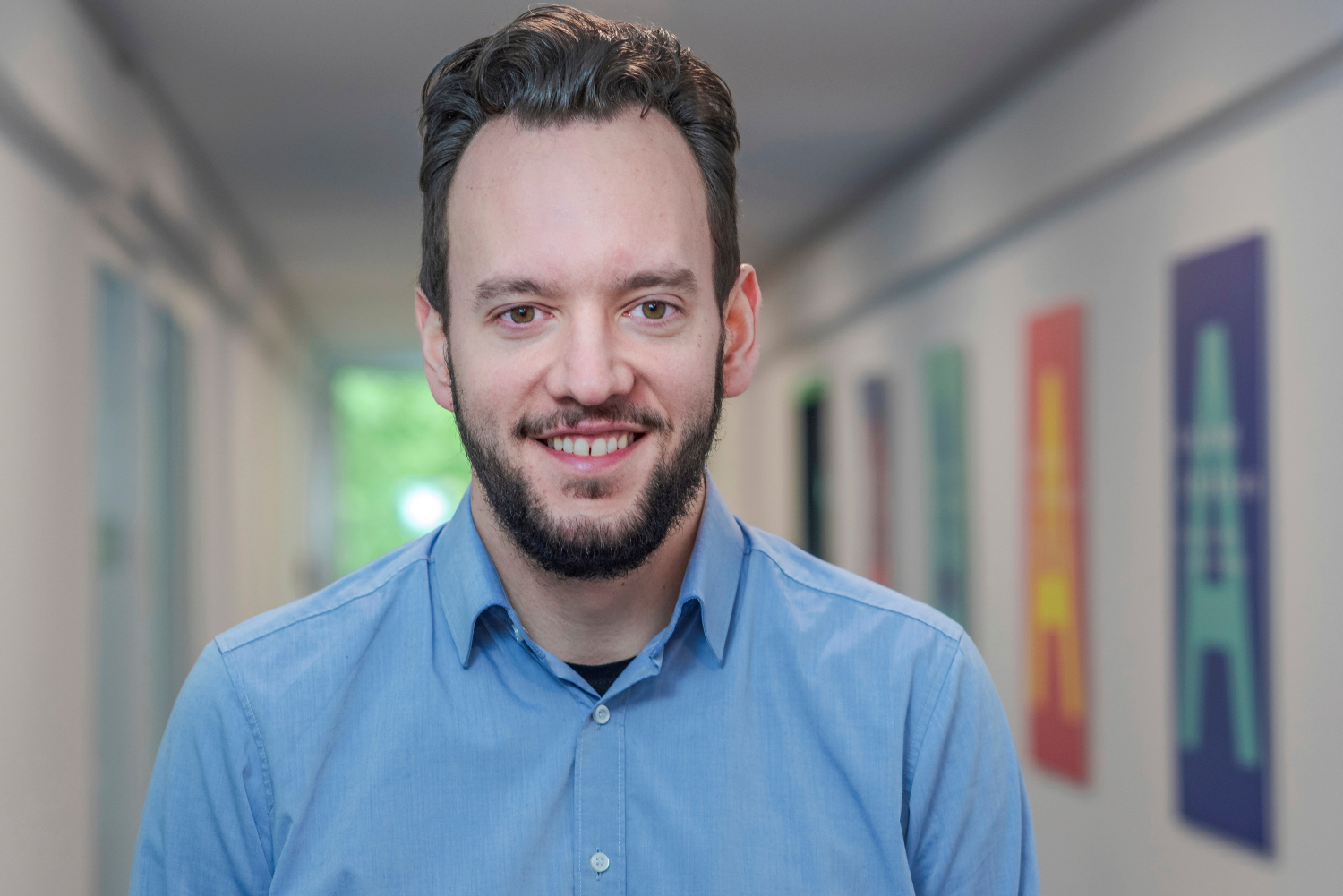The reasons for persecution are not a thing of the past

We launched our #everynamecounts campaign “Stand up for respect, diversity, and democracy” in January and brought the call to action into the public arena by displaying it on billboards in 18 German cities. During the next phase of the campaign, we will be focusing on eight themes as the basis for exploring the reasons for persecution–because far from being a thing of the past, they are still very relevant today.
Migration, flight, LGBTQIA+, freedom of the press, freedom of expression, antisemitism, political persecution, and religious affiliation: these are the topics we will be focusing on in the coming weeks across all the communication channels of the Arolsen Archives.
We will be talking to academic experts, but also to people who have a personal or professional interest in these topics–like Frank Joung, who talks to celebrities about their migration history in his German-language podcast “Halbe Katoffl” (half a potato). The faces of our “Stand up for respect, diversity, and democracy” poster campaign will also have the opportunity to speak out, one of them being Lukas Reußner.
»If I had been alive in Europe 80 years ago, I would not have been able to live an openly queer life. I would have been one of the victims of National Socialism. That is why I support the Arolsen Archives with their #everynamecounts project.«
Lukas Reußner, LGBTQIA+-activist

Learning the lessons of the Nazi period
By focusing on a special topic each week, we want to draw attention to the fact that the reasons for persecution are not a thing of the past. At the same time, we also want to encourage young people to stand up for diversity in society. Young people between the ages of 14 and 25 are very interested in the Nazi era, as our recently published study “Gen Z and Nazi History: High Receptivity and Strange Fascination” shows. The younger generation automatically relates the Nazi era to the present day, and this prompts them to think more deeply about social problems like racism and discrimination.
Looking back at the past can also provide an interesting perspective on the situation of refugees today. Dr. Christian Höschler, a historian at the Arolsen Archives, will talk about this with us in an interview on the topic of “migration with dignity.”

»The situation is different now than it was at the end of the war, when there was a common will to face challenges together as an international community of nations. That was a much stronger motivating force in those days than it is now because people had been through these terrible experiences of war, and they knew what national egoism can lead to. If we demonstrated a similarly strong will now, some of the major challenges we are now facing might soon prove less of a challenge.«
Dr. Christian Höschler, historian at the Arolsen Archives
Take part in our theme weeks: Tag our social media channels, give us your feedback, post a comment, and share our posts with your community as your way of standing up for respect, diversity, and democracy!

